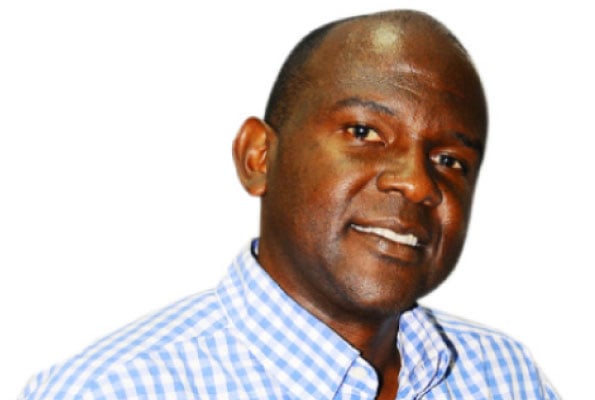Africa rising; the tale of two economies

Author: Nicholas Sengoba. PHOTO/FILE/COURTESY
What you need to know:
- Almost every assertion is followed up with statistics and figures that leave one in no doubt about the authenticity of the reports. Theirs is a tale of robust economies that are performing well on all leading and lagging macroeconomic indicators.
Almost every day you read optimistic reports and forecasts about the state of an African economy. They are typically written by experts or consultants from internationally acclaimed universities and institutions like the World Bank or local authorities whose word in economic matters is bond.
Almost every assertion is followed up with statistics and figures that leave one in no doubt about the authenticity of the reports. Theirs is a tale of robust economies that are performing well on all leading and lagging macroeconomic indicators.
There is sustained growth over long periods. The GDP is growing steadily. The inflation is controlled within acceptable limits and the interest rates are market friendly.
A trickle-down effect is seen in the increase in financial inclusion. In these economies, the number of people living in poverty keeps decreasing while household incomes are perpetually on the rise.
The subsistence economy is dying slowly but surely. Socially there is a rise in investment in the education sector with more children going to school and literacy rates rising.
The health of citizen gets a favourable mention with immunisation rates saving many from curable diseases culminating into lower infant mortality rates and population growth. Generally being dominantly an agrarian economy, yields from the investment into the modernisation of agriculture are depicted as promising and pointing towards absolute food security.
Mining and extraction of the vast natural resources is another success. So is the growth in the internet and communication technology plus the vast improvement of infrastructure like roads and ports. All this and much more pictures a conducive environment for Foreign Direct Investment.
This, of course, is all thanks to following the correct free market economic policies augmented by the ‘generous contribution’ of the magnanimous development partners. These have apparently embarked with gusto and self-abnegation, on a mission of uplifting the African from abject poverty, hunger, disease and ignorance.
Make no mistake, the development partners are not the legendary mother goose that fends for its young ones. They are into lending as a business and make quite a pile in interest for the loans they give to the African country. But that is for another day. The conclusion after this analysis and a lot more; is that Africa is rising and is the place to be. Then you come to the ground where the rubber meets the road.
You find children going to school alright, but some are in very precarious structures if not, under trees. In many instances you will find learners without teachers. Some of these pupils at the primary leaving level will find it challenging to comprehend passages meant for children in their fourth year of primary school.
Some teachers too suffer in the same manner when subjected to exam questions for the primary leaving stage. Then with all the investment you find hospitals that are fast turning to hospices.
Yes, they are beautiful structures with no basic medicine and inadequate staff numbers. The exports are still dominated by primary products with little value addition as manufacturing hardly grows.
In the much touted free market you hear of interventions in awarding tenders and contracts. This favors not, the most suitable bidder as tested by the forces of demand and supply but to one with proper connections.
The armies of the unemployed urban poor keep expanding and there is no sign that they can be absorbed in the economy that is ever-growing.
In the rural areas it is visible that the number of poor people is on the rise with the figures by the experts of people living on less than a dollar a day contradicting many of the optimistic indicators.
Then you have the story of the multinationals and foreign investors who heard the clarion call of Africa rising and came down to harvest the fruits. It’s befuddling when they pack their bags and leave citing the lack of viability for their investment in the long run.
They leave the space to the type of investor to whom a hard sale is made with free land, tax holidays and all manner of incentives without which he would face the harsh realities of the economy that have made many fold under the weight of debt.
When all is said you end up with the major and guaranteed economic activity being politics. Speculation and commission agency follow in hot pursuit. The indigenous rise up to the level of importation but not investment in manufacturing which they consider too risky.
They will venture into the safer area of real estate which when crowded because everyone heads there at some point. A glut leaves many at the mercy of banks and financial institutions.
Most of the viable entities from banks, to telecoms, trade, agriculture, fish exports, mining etc slide into the firm hands of foreign investors leaving the African for whom Africa is rising, at the level of an employee.
Meanwhile, the politician who proudly talks about economic progress, safely takes his children abroad for their education.
His confidence restrains him from subjecting them to the schools borne out of the investment in the sector at home. He will even get them jobs and citizenship there, as opposed to them enjoying the fruits of the robust economy built overtime.
The same fellow will rush abroad at the expense of the taxpayer should he fall sick or for his wife or concubine to safely deliver a baby instead of risking in the health sector that has tremendously improved.
The huge figures of the foreign debt and the interest paid on these loans compared to what is on the ground is mentioned in lamentations and speeches at seminars.
Then more loans are acquired because we have become so dependant we can’t do without them even if we know that they are now a huge cost to progress.
They say it is the fish that live in the water that know the crocodile well. The story of Africa rising is alien to most of the ordinary Africans who live, operate, and sweat in the economy. They know it well.
The one with the rosy figures also has its owners and audience who are louder and better facilitated when it comes to selling their version of the economy.
Mr Sengoba is a commentator on political and social issues Twitter: @nsengoba




